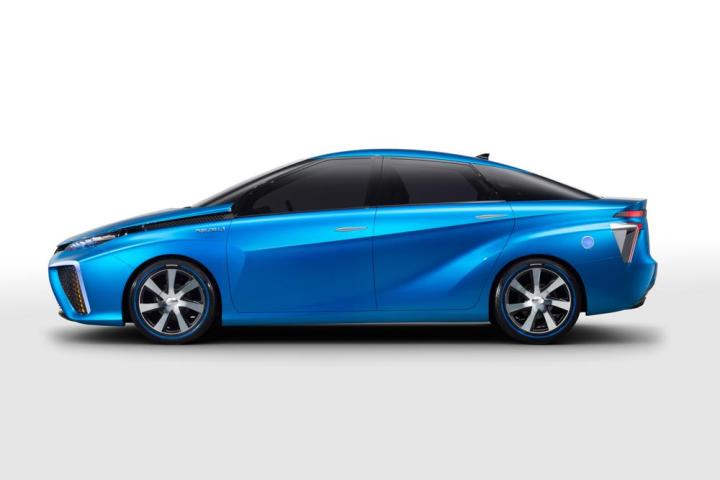
In a famous piece of advertising showmanship, Pontiac executive John Z. DeLorean demonstrated the brand’s new-for-1968 Endura front bumper by hitting it with a hammer. Toyota has done DeLorean one better.
Speaking at the Automotive News World Congress this week, Toyota executive Bob Carter said the company fired bullets at its hydrogen fuel tanks to test their durability. Some have questioned the safety of hydrogen fuel-cell vehicles because they have to carry the same fuel as the Hindenburg. As far as ways to shut them up go, this sounds like a pretty good one.
Carter said small-caliber rounds bounced off the carbon fiber tanks. A .50-caliber round – the kind used in an M2 machine gun or a powerful sniper rifle – was able to penetrate the tank. “And, even then, it just left a hole and the hydrogen simply leaked out.” he said.
Apparently feeling as invincible as his company’s hydrogen fuel tanks, Carter also name-checked the leads of rival carmakers. “Personally, I don’t care what [Tesla Motors CEO] Elon [Musk], [Renault Nissan CEO] Carlos [Ghosn], or [Volkswagen of America CEO] Jonathan [Browning] say about fuel cells,” he declared. “If they want to ‘plug-in and tune out’ of other technologies, that’s fine.”
Toyota will launch a production hydrogen fuel-cell car in 2015, based on the updated FCV concept it unveiled at the 2013 Tokyo Motor Show, and brought to CES earlier this month. The car will have a 310-mile range and will take about three minutes to refuel, Toyota says. It could cost anywhere from $50,000 to $100,000. There’s a lot of uncertainty surrounding the viability of hydrogen cars, but at least customers will know that this one does decently well in a gunfight.
Editors' Recommendations
- All the hydrogen vehicles available for purchase
- Hyundai cracks off two new land speed records in fuel cell, hybrid cars
- Toyota’s E-volution continues with 2021 Mirai and 2021 RAV4 Plugin
- Toyota uses hydrogen fuel cells to power one of its Japanese factories
- BMW teases hydrogen cars again with fuel cell X5 concept


